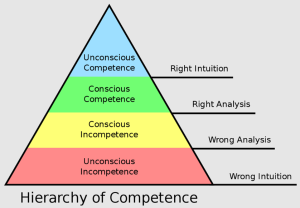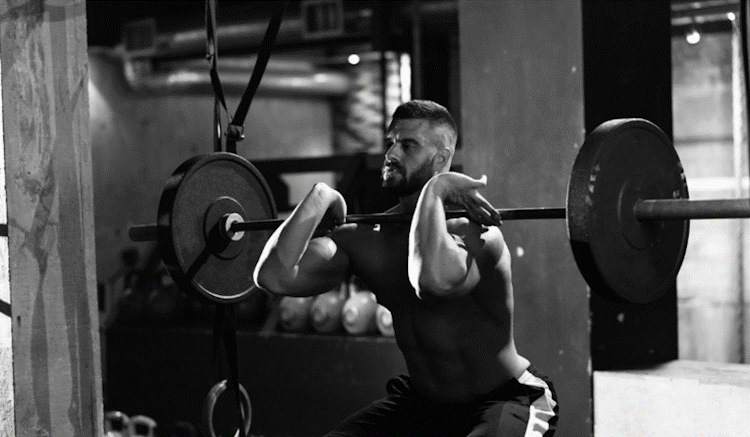The 4 stages of competence: mastering your mind for better results
Have you ever heard the phrase “bodybuilding is not a 100-meter dash, but rather a marathon”? In my opinion, whoever came up with that analogy is spot-on, not only in the physical aspect of it, but also in the mental aspect. As a matter of fact, I personally have seen countless cases of people who tried to take the fast route only to find themselves disappointed by the (lack of) results, simply because not everyone has the right genetics to benefit from a heavy usage of steroids or are not suited to withstand a professional bodybuilder’s training routine, not to mention the health-related complications sustained during the process.
One thing most successful bodybuilders have in common is their extreme resilience and mindset, being able to stay consistent with their training, dieting and hormone protocols for extended periods of time. A great physique is built through years of persistence, not overnight.
As with many activities in life, excellence in building one’s physique comes slowly. Climbing the 4 stages of the “learning ladder”, as we borrow this term from field of neurolinguistic programming, is essential in order to progress through the process. Let’s breakdown each of these 4 stages of competence, as well as provide some tips to move forward to the next one:

Stage #1
Unconscious incompetence: this is the stage of blissful ignorance, you just go to the gym because you like it; you do whatever you feel like doing, doesn’t matter if it’s wrong or not. In fact, you don’t even know it.
How to get past stage #1: getting past stage 1 is often a combination of things. First off, there must be the will to get past it, as you will never be able to get past stage 1 if, for instance, you hate going to the gym and have absolutely no interest in eating a balanced diet. Secondly, getting outside help can do wonders here, such as hiring a coach or a personal trainer to help you out with your training and diet. Thirdly, and perhaps the most important, is getting out of your comfort zone. You just can’t grow and progress without challenge and a little bit of pressure.
Stage #2
Conscious incompetence: at this point, you know you’re doing something wrong, or you know you could be doing better, but you lack the knowledge, the will or the ability to do it right.
How to get past stage #2: the main roadblock for getting paste stage 2 is something called “rationalization”, a process of creating false but plausible excuses to justify negative behavior. For example, “I can’t squat because I hurt my knee playing hockey when I was 12.” or somebody saying they can’t afford a $3 post-workout protein shake when they have a Starbucks every day, or even someone who claims they don’t have the time to prep his meals when he spends 3 hours every day playing video games.
Stage #3
Conscious competence: you start doing things right, but it’s a struggle. You end up doing the right choices that will lead you to your end goal, but it’s still a daily battle.
How to get past stage #3: this is perhaps the hardest stage to get out of. Sure, it’s still success if you’re doing the right choices, but the daily grind can make it easy to slip back to stage 2. The key here is to make a habit out of your good choices. Most behavior experts agree that doing the same thing for 21 consecutive days creates a habit. For example, eating healthy for 21 days straight will make a habit out of it, effectively making you crave bad food less and less. But there’s a very dangerous trap here: if you reward yourself with a cheat meal because “you deserve it” or some other reason you may come up with, you’re transforming it into a reward, when in reality you should save cheat meals for when you actually need them. But your ultimate reward should be knowing that you’ve stuck to the plan and are making progress. Time and reward: the two key aspects of getting past stage 3.
Stage #4
Unconscious competence: the right course of action is now your second nature; you do things right without having to think about it.
Hopefully this piece has given you an insight on how to program your mind to reach the fourth and final stage in the learning ladder. This four stages concept can be applied to various aspects of life, whether it’s learning an instrument or a new language to how you create healthy habits or even how you perform at your job and in the gym. It sure does take a lot of work to reach level 4, and sometimes mental work is harder than physical work, but this might as well be the missing element for you to achieve your goals.









